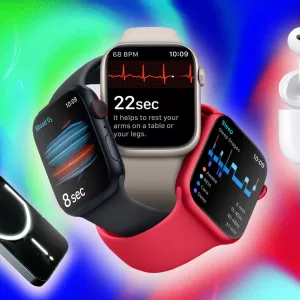
Introduction to Personalized Nutrition
In my journey of adopting a healthier lifestyle, I stumbled upon the concept of personalized nutrition. It was fascinating to discover the significance of tailoring my diet to my genetic makeup. I find it crucial to convey the clear understanding of this concept and hence want to delve into how precisely our genetic background can have a profound impact on our dietary demands and choices.
The Concept of Tailored Diets
– **Customized Dietary Plans**: The core of personalized nutrition is the design of diet plans that are crafted to fit individual genetic profiles. This helps in optimizing health goals which, in my case, meant that my nutritional intake could be fine-tuned to my body’s specific requirements.
– **Influence of Genetics on Nutrition**: Certain genetic variations can affect nutrient metabolism, making it either easier or more challenging for individuals to process certain types of food. Uncovering these unique characteristics helps in creating a highly tailored diet.
– **Prevention and Management of Diseases**: By aligning my diet with my genetic profile, I learned that it can not only help in achieving optimal health but also in preventing the onset of genetically predisposed conditions.
The Science Behind DNA-Based Nutrition
– **Genetic Testing for Health**: To kickstart personalized nutrition, genetic testing plays a pivotal role. For me, it involved a simple, non-invasive procedure that gave me a wealth of information about my body’s particular needs.
– **Genes and Nutrient Absorption**: I discovered that certain genetic markers can tell us how well we can absorb and utilize nutrients like fats, proteins, and carbohydrates. So, by analyzing these markers, a nutritionist can make informed decisions about what should be included in my diet and what should be avoided.
– **Tailoring Macronutrient Ratios**: From the genetic data, it became evident which macronutrient ratios work best for me. Some people, including myself, might benefit from a higher protein intake, while others might require a diet richer in healthy fats.
By integrating personalized nutrition into my lifestyle, the transition to a healthier living became a structured and clear pathway. With genetic insights in hand, I was able to undertake an informed journey to revamp my diet and health routines. Such a diet is not just about eating specific foods; it’s about understanding how my body works with the foods I eat and making adjustments that promote overall wellness. Keeping a tab on my eating patterns, preferences, and genetic predispositions has transformed how I view nutrition: no more one-size-fits-all, but a fine-tuned approach to eating right for my DNA.
Understanding Your Genetic Makeup
In this modern age of personalized medicine, understanding your genetic makeup has never been more critical to achieving optimal wellness. Your DNA holds the blueprint to how your body processes foods and responds to exercise. Here’s how a DNA diet works and how you can leverage this knowledge for better health.
Analyzing Your DNA for Diet Optimization
– **Personalized Nutrition Plans**: By analyzing specific genetic markers, you can uncover how your body metabolizes various nutrients. This information aids in crafting a tailored diet plan that aligns with your body’s natural tendencies.
– **Understanding Nutrigenomics**: Nutrigenomics is the study of how food interacts with our genes. Recognizing which foods work best with your genetic profile can prevent diseases and improve health outcomes.
– **Interpreting Genetic Test Results**: Genetic testing can be complex. A healthcare professional can translate the data into actionable advice, helping you make informed decisions about your diet.
– **Adjusting Food Intakes**: If the test reveals you metabolize fats differently, you can adjust your intake of certain types of fats for better health.
The Role of Genes in Metabolism and Food Tolerance
– **Identifying Food Sensitivities**: Your genes may signal a higher risk of gluten intolerance or lactose intolerance. Understanding these risks can help you avoid discomfort and adverse health effects.
– **Optimizing Metabolic Health**: Genes play a critical role in how your body uses energy. Knowing your genetic predispositions can lead to a more effective metabolism-boosting diet.
– **Tailoring Macronutrient Ratios**: Each body has a unique ideal balance of proteins, fats, and carbohydrates. Genetic testing can inform you about the best ratio for your dietary needs to optimize health.
Getting started on a DNA diet plan is an empowering step towards understanding your body and taking control of your health. From deciding which test is right for you to interpreting the results, remember that you don’t need to navigate this journey alone. Seek guidance from professionals who understand the science and can tailor a plan that’s as unique as your DNA.
By exploring the powerful intersection of genetics and diet, we can uncover the individually tailored path to wellbeing that’s been encoded in our very DNA. Consider starting with a scientifically-backed, doctor-recommended program to ensure the reliability of the data and the safety of the dietary recommendations made just for you.
GenoPalate’s Essential Nutrition Report
Navigating through the maze of nutritional advice can be baffling, but personalizing your diet based on genetic analysis can be revolutionary. GenoPalate, for example, provides an Essential Nutrition Report that utilizes your DNA to recommend the most suitable foods for your individual genetic makeup. This innovative approach to dieting isn’t merely about weight loss; it’s about optimizing health and wellness by aligning what you eat with your genetic disposition.
Exploring GenoPalate’s DNA Analysis Services
When I embarked on my journey with GenoPalate, I discovered they offer an array of services that analyze different genes which are linked to nutrient metabolism, sensitivities, and even taste preferences. Here’s what I gleaned from their offerings:
– **Customized Nutritional Insights**: GenoPalate’s report detailed my genetic predisposition for metabolizing fats, proteins, and carbs, providing a clear picture of what my body needs.
– **Food Sensitivities**: The service identified my genetic risks for food sensitivities. This knowledge has allowed me to modify my diet to avoid potential discomfort.
– **Taste Preferences**: It was fascinating to learn about the genetic factors that influence my taste preferences. This factored into understanding why I crave certain foods and how I can make healthier substitutions.
– **Chronic Disease Risks**: The report also highlighted genes that may impact my risk of certain chronic diseases, which is invaluable for preventive health strategies.
How to Get Started with Your DNA Upload
Getting started with GenoPalate was a straightforward process. If you’ve had your DNA tested with services like 23andMe or Ancestry.com, you can upload your data directly to GenoPalate. Here’s a step-by-step guide:
– **Secure Your DNA Data**: First, I downloaded my raw DNA data file from my existing test provider’s website, ensuring that it was in a format GenoPalate could process.
– **Upload to GenoPalate**: Then I visited GenoPalate’s website, created an account, and uploaded the file through their secure portal.
– **Professional Analysis**: My data was then analyzed by GenoPalate’s team of experts who compiled my Essential Nutrition Report.
– **Receive the Report**: Within a short period, my personalized nutrition report was ready. It was easily accessible through my account for my review and consultation.
Overall, using the GenoPalate service was an enlightening experience. By comparing their recommendations against my existing dietary habits, I made crucial adjustments to my diet. My takeaway from this experience is the compelling realization of just how bespoke nutrition can be and the profound effects it has on our health. This precision in dietary planning is something I see as an investment in my long-term health and well-being.
Benefits of a DNA-Based Diet Plan
Potential for Enhanced Weight Loss
– **Targeted Weight Management**: Embracing a diet plan based on my genetic makeup has proven to be significantly more effective for weight loss as it aligns with my body’s needs. There’s no guessing game; it’s clear-cut which foods will likely help me shed pounds.
– **Understanding My Appetite and Satiety**: Genetic insights can reveal how my body reacts to certain foods, guiding me to choose options that might keep me fuller for longer, thus supporting weight control.
– **Metabolic Efficiency**: With a diet optimized for my genetics, my metabolism can operate at its best, potentially enhancing my body’s ability to lose weight. This can help with more efficient fat burning and better energy management.
Personalized Nutrition for Optimized Health
– **Reduced Risk of Nutritional Deficiencies**: A DNA diet plan can highlight which nutrients I might have trouble with based on genetic variations, such as absorbing certain vitamins, guiding me to focus on foods that can compensate for these gaps.
– **Optimal Health Outcomes**: Tailoring my diet to my unique genetic profile not only supports weight loss but also enhances overall health, potentially reducing the risk of developing conditions that my DNA may predispose me to.
– **Sustainable Eating Habits**: Knowing which foods work best with my genetic makeup encourages me to make more informed and sustainable food choices that I can maintain for the long haul.
To embark on a DNA diet plan, I understand that it starts with choosing the right genetic test—one that’s ideally suited to my health goals and backed by scientific evidence. After obtaining my genetic profile, a doctor or a trained nutritionist can help me make sense of the results and translate them into a manageable and effective diet plan.
This journey is a personal one; choosing this path means committing to a deeper understanding of how my body works and using that knowledge to better my health. It’s about leveraging the data encoded in my genes to thrive in a way that’s been tailored just for me.
By taking this step with the guidance of medical professionals, I can ensure that I’m not only making decisions that are sound but also that they’re safe. In a world where one-size-fits-all diets don’t yield the best results for everyone, the appeal of a DNA diet is its intimate customization, and that’s a journey worth exploring for my health and wellbeing.
Customized Diets for Athletes
DNA-Guided Diets for Enhanced Athletic Performance
– **Tailored Nutritional Needs**: My athletic performance can be substantially improved by a diet that is designed to meet the specific demands of my sporting activities. Understanding the genetic factors that influence nutrient uptake and muscle recovery can give me an edge.
– **Informed Supplement Use**: Determining the types and amounts of supplements based on my genetic profile can optimize my training results and potentially reduce the risk of over-supplementation and its side effects.
– **Prevention of Exercise-Related Injuries**: Genetics can reveal my predisposition to certain injuries, allowing my diet to be tailored to strengthen areas of potential weakness and enhance joint and muscle resilience through targeted nutrition.
Nutritional Strategies for Competitive Edge
– **Maximized Energy Utilization**: A DNA-based diet can help me understand how my body metabolizes carbohydrates, fats, and proteins, enabling me to align my intake with my energy expenditure for improved athletic performance.
– **Hydration and Electrolyte Balance**: Genetics play a role in how my body manages fluid and electrolyte balance, which is crucial during intense training and competition; having a personalized hydration strategy can prevent cramps and optimize endurance.
– **Recovery Optimization**: Post-exercise recovery is essential for athletes. A diet that is customized based on my DNA helps in faster recovery by providing the right nutrients to repair muscle and replenish energy stores.
Embarking on a DNA-based diet plan means stepping into an era where nutrition and genetics converge to not just improve my day-to-day health, but to enhance my athletic performance and give me a competitive advantage in sports. With the specialized guidance from health experts, I can understand how my body uniquely responds to different foods and use that knowledge to fuel my body more effectively.
By incorporating this level of personalization into my dietary plan, I can cater to the specific demands of my athletic pursuits. Whether it’s endurance running, weightlifting, swimming, or any other high-intensity activity, a customized diet has the potential to support my goals of achieving peak physical performance.
In partnership with a physician or a certified nutrition specialist, I can take a comprehensive approach to nutrition that considers my genetic makeup, the intensity of my training, and the specific nutrients my body requires to excel in my sports discipline. This personalized roadmap is not just designed to help me perform better in the short term; it aims to give me the tools and insights I need to maintain my athletic abilities and promote longevity in my sports career.
As the future of health and nutrition unfolds before me, I am eager to explore how DNA-based dietary plans can revolutionize the way athletes approach nutrition and how these advances can drive the quest for peak physical excellence and a sustained competitive edge.
Food Selection and Preparation
Choosing Foods Compatible with Your Genes
– **Gene-Specific Food Choices**: After receiving my DNA diet plan, selecting foods that are compatible with my genetic makeup becomes a priority. This means focusing on items that my body can process efficiently, leading to better health outcomes.
– **Identifying Intolerances**: The genetic testing can delineate any food intolerances I may have, aiding in the avoidance of foods like gluten or lactose if they’re not compatible with my genetic profile.
– **Nutrient Optimization**: The plan often highlights specific nutrients that my body needs more of, steering me towards foods rich in those elements. This personalized approach can drastically improve nutrient absorption and effectiveness.
– **Food Variety**: My DNA diet isn’t restrictive in the traditional sense—it diversifies my food choices by identifying a wide array of foods that benefit my unique physiology, thus ensuring a colorful and varied diet.
Tips for Preparing Personalized Nutritious Meals
– **Cooking Techniques that Preserve Nutrients**: I’ve learned that how I cook my food impacts its nutritional content. Steaming and grilling, for example, can conserve and enhance my meals’ nutrient profile more than overcooking or deep-frying.
– **Meal Planning Around Genetics**: Armed with my DNA-based nutrition guidelines, planning meals has become a precise science. I’ve started crafting meal plans around my genetic needs, ensuring each dish serves a purpose for my health.
– **Balancing Macronutrients**: Understanding the optimal balance of protein, fat, and carbohydrates for my body type is crucial. My DNA diet plan helps sculpt this balance, so I focus on preparing meals with the correct macronutrient ratios.
– **Experiment with Whole Foods**: My diet plan suggests whole, non-processed foods that work best for me. Experimenting with these has expanded my palate and cooking repertoire, leading to an enjoyable and health-forward culinary experience.
Adapting my diet and cooking habits to align with my DNA-based diet plan did take some getting used to. It required me to pay closer attention to food labels, be mindful of my body’s reactions to different foods, and sometimes spend a bit more time in the kitchen. However, this personalized approach to nutrition has empowered me with the knowledge to make healthier choices, knowing that they are based on the intrinsic needs of my body.
As I move forward with a nutrient-rich, gene-compatible diet, the prospects of improved health, vitality, and longevity become more tangible. Each meal has the potential to be an investment in my well-being, crafted according to the scientific blueprint of my genetic profile.
Challenges and Considerations
Addressing Privacy Concerns with Genetic Data
– **Confidentiality of Sensitive Information**: When I first contemplated a DNA diet plan, one significant worry was the privacy of my genetic information. Ensuring that my data remains confidential and is used only for the intended purpose of creating my diet plan is paramount.
– **Data Security Measures**: I had to make sure that the company I chose to handle my genetic testing employs robust data security measures. Adequately protected genetic data provides peace of mind that my most intimate biological details won’t be compromised or misused.
– **Understanding Usage Permissions**: It was important for me to understand who could access my genetic information. Reading through the company’s privacy policy, I clarified permissions and the extent of my control over my own genetic data.
– **Informed Consent**: Providing informed consent means fully recognizing how my genetic data will be used, both for my dietary plan and any other potential purposes. Prior to the test, I acknowledged and accepted these terms, but not without serious consideration of the implications.
Evaluating the Cost of Personalized Diet Plans
– **Initial Testing Expenses**: Beyond the possible health benefits, a financial perspective had to be considered. The cost of the genetic test alone was a significant investment. Weighing this expense required me to reflect on the value it would bring to my health journey.
– **Long-Term Cost-Benefit Analysis**: I had to consider whether the potentially higher cost of certain recommended foods and supplements would be mitigated by improved health and possibly lower medical expenses down the line.
– **Availability of Alternatives**: Knowing that there are more conventional and less costly diet plans available, I compared these to determine if the additional customization of a DNA diet plan would justify the premium.
– **Insurance Coverage and Healthcare Spending**: I checked my health insurance policy and healthcare spending account options. Unfortunately, DNA-based diet plans are often not covered by insurance, leaving the full financial responsibility on me.
Embarking on the DNA diet plan journey required careful deliberation over various factors outside of the diet itself. Not only did my genetic constitution lay the groundwork for my personalized diet, but practical considerations played a significant role in my commitment to this approach. Whether examining the potential risks associated with sharing my genetic data or assessing the financial implications, each posed a real challenge that necessitated thorough thought and planning. Even when equipped with all the relevant information, the decision to proceed wasn’t simple; I had to align my desire for a tailored health strategy with the realities of cost and data privacy.
Expert Opinions and Research
Harvard Research on DNA-Based Diets
– **Groundbreaking Studies**: Harvard University has conducted groundbreaking studies that delve into the crux of DNA-based nutrition. These studies provide evidence supporting the idea that our genes can indeed influence the effectiveness of our diets.
– **Personalized Nutrition Insights**: Harvard’s experts suggest that by understanding our genetic makeup, we can gain valuable insights into how our bodies respond to different types of foods and nutrients, leading to more personalized and effective diets.
– **Gene-Diet Interactions**: The research has identified specific gene-diet interactions which help in predicting how individuals might respond to certain dietary patterns. This could include responses related to metabolism, weight loss, and the risk of developing diet-related diseases.
– **Focus on Long-term Health**: Harvard research does not only focus on weight loss or fitness; it also considers the implications of gene-tailored diets on long-term health and prevention of chronic diseases, reinforcing the importance of DNA in diet planning.
Reviewing Clinical Studies on Genetic Diet Effectiveness
– **Evidence-Based Outcomes**: I take an interest in reviewing clinical studies that provide evidence-based outcomes on the effectiveness of DNA-based diets. These studies often show improved results in individuals who use a genetic approach to nutrition.
– **Contrasting Generic Diets**: The studies I have reviewed often contrast DNA diets with generic diets to highlight the bespoke nature and benefits of personalized plans. It’s clear that a one-size-fits-all approach does not yield optimal results for everyone.
– **Genetic Markers and Weight Loss**: Some clinical studies specifically focus on genetic markers that play a role in weight management. They reveal that people with certain genotypes may lose more weight with a diet that is high in protein but lower in carbohydrates, for instance.
– **Nutrigenomics as an Emerging Field**: Nutrigenomics is an emerging scientific field that studies the relationship between the human genome, nutrition, and health. It offers room for further research and potential discovery, continually influencing the way DNA is used to create personalized diet plans.
Staying abreast with the ongoing research and expert opinions in the field of DNA diets is necessary to authenticate and refine my tailored dietary approach. While much is still being discovered, the current consensus and data suggest that employing my genetic information to guide my diet can lead not just to improved physical performance, but also to a higher standard of overall health and wellness. By continuing to align my nutrition with my genetics, I am participating in what may well be the future of personalized health and nutrition.
Getting Started with a DNA Diet Plan
The Basics of a DNA Diet
– **Understanding Your Genetics**: The very first step in commencing a DNA diet plan is to have a comprehensive understanding of your genetics. This involves undertaking a DNA test that can pinpoint specific markers relevant to nutrition and health.
– **Consulting a Medical Professional**: Before diving into a DNA-based diet, consulting with a healthcare provider is essential. A medical professional can assist you in selecting the appropriate DNA test and interpreting the results in the context of a diet plan.
– **Choosing the Right Test**: With a myriad of DNA tests available in the market, it’s critical to choose one that aligns with medical supervision and offers personalized insights into your dietary needs.
– **Personalized Diet Construction**: Once the genetic information is available, a diet can be tailored to fit the individual’s genetic predispositions, considering how their body processes different foods and nutrients.
Taking Action: How to Implement Your DNA Diet
– **Interpreting DNA Test Results**: Understanding the results of your DNA test is the next key phase. A specialist in the field of genomics or a dietitian with experience in genomics can help you translate the data into actionable dietary guidelines.
– **Setting Realistic Goals**: Based on your DNA, it’s important to set realistic and achievable health goals. DNA diets aren’t just about weight loss—they are about optimizing health, so goals may vary from person to person.
– **Incorporating Genomic Insights**: Your diet plan should include the types of foods and nutrients that are recommended based on your genetic makeup. This might mean adjusting macro-nutrient ratios or incorporating specific vitamins and minerals.
– **Monitoring and Adjusting**: As with any diet, monitoring progress and making adjustments is crucial. Not all recommendations may work perfectly from the start, so being flexible and working with a healthcare provider to tweak the diet is important.
– **Support System**: Engaging with a community or support group that focuses on DNA diets can provide encouragement and share experiences that can help in staying motivated and informed about new developments.
Evaluating the Success of Your DNA Diet
– **Tracking Improvements**: It’s advisable to track improvements not just in weight or body composition, but also in energy levels, digestion, and overall wellbeing. This comprehensive evaluation helps gauge the effectiveness of the diet.
– **Periodic Re-evaluations**: Genetic expressions can change over time, and so can lifestyle and environment. Periodically re-evaluating the DNA diet plan in conjunction with new health data or changes in your life is beneficial.
– **Engagement with Healthcare Providers**: Ongoing dialogue with healthcare providers is critical. They can help assess progress, make necessary changes, and evaluate the long-term impact of the DNA diet on health.
By following these guidelines, you can harness the power of your unique genetic profile to create a tailor-made diet plan that optimizes your health, potentially transforming the way you manage your nutrition and wellness.
















